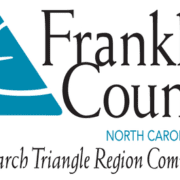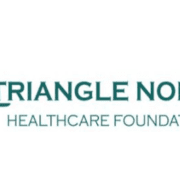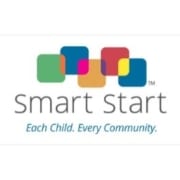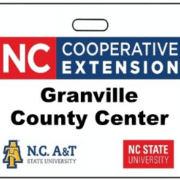The Franklin Granville Vance Smart Start Inc. annual report has been released and the agency’s executive director said his agency and staff undoubtedly have learned how to be flexible and adaptable as it continues to advocate for children, in spite of pandemic restrictions.
In a letter accompanying the 8-page report, FGV Executive Director Dr. Tony W. Cozart said the 2020-21 year had been “difficult but very gratifying as well.”
FGV’s fiscal manager, Garry Daeke, agreed wholeheartedly. Daeke spoke with John C. Rose Tuesday on Town Talk and said he was very happy to report that, despite the difficulties of the pandemic, FGV staff had been able to maintain relationships with both child-care providers as well as parents.
“We’ve been able to keep in contact and provide service and information to people,” he said, acknowledging that the one-on-one contacts have been limited, but FGV has found ways to do an end-around some challenges.
For instance, Daeke said FGV has been able to provide technical assistance via videotape and through increased filming of sessions. By filming programs and activities, FGV staff can critique and provide suggestions to help child-care providers with everything from how to set up a classroom to being financially efficient – staying safe and healthy at the same time.
There are 112 child-care programs in the three counties that FGV serves, Daeke said. “They’ve kept people working, because people need childcare.”
The agency gets most of its funding from the state (85-90 percent), and it has spent $907,689 to help parents pay for childcare in the past year, according to the report. The subsidy is available to parents who send their children to programs with a 4- or 5-star quality rating.
“We spend a great deal of money to provide a subsidy” to parents, Daeke said. FGV also supplements wages of teachers who stay in their jobs for a certain length of time and who continue to further their education. The report notes that 80 teachers received an average of $1016 in supplements in a six-month period.
“We spend a lot of money to make sure child care is high quality and that parents are able to access that child care,” Daeke said.
A number of programs that FGV supports don’t happen within the walls of a child-care center at all; rather, there are a variety of agencies that FGV contracts with that are quite successful as well.
Vance County’s adolescent parenting program that Annie Perry oversees, for example, focuses on keeping teenage moms in school so they can graduate. Daeke said Perry, a longtime program administrator, does an excellent job and consistently has graduates go on to continue their educations at Vance-Granville Community College or four-year universities.
“The main goals are to keep them in school and to prevent a second pregnancy. The program “helps them become the parent they need to be,” Daeke said. “We’ve had a lot of success over the years.”
Other programs like Parents as Teachers is a home visitation parenting program that operates primarily in Granville County through a partnership with Granville County Public Schools. And the Incredible Years program partners with the Vance Cooperative Extension to provide several sessions each year to work directly with parents to help them “be the very best parent you can be,” Daeke said. Although only in Vance County now, Daeke said he’s looking for grant funding to expand the program to Granville County and possibly Franklin County.
And a child-care health consultant has just come on board to visit child-care programs to help providers with health concerns. FGV has contracted through the Granville-Vance Health District to provide a nurse to help child-care providers, he said.
According to the report, total FGV expenditures for FY 2021 was $3,381,751. Almost three-fourths of that funding is used to ensure the availability and accessibility of high-quality childcare for children ages 0-5 years. That is done a variety of ways, including subsidies for working families through the Department of Social Services to help pay for childcare. It also administers the NC Pre-K program in Franklin County and offers wage incentives to retain childcare workers and ensure continuity of care.
Click Play








